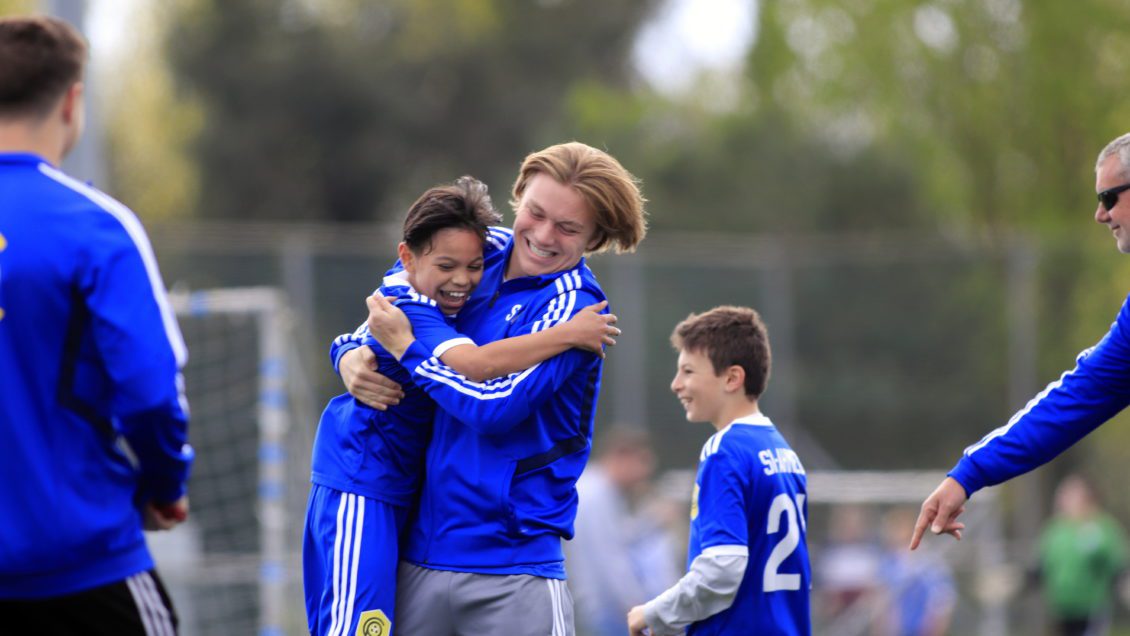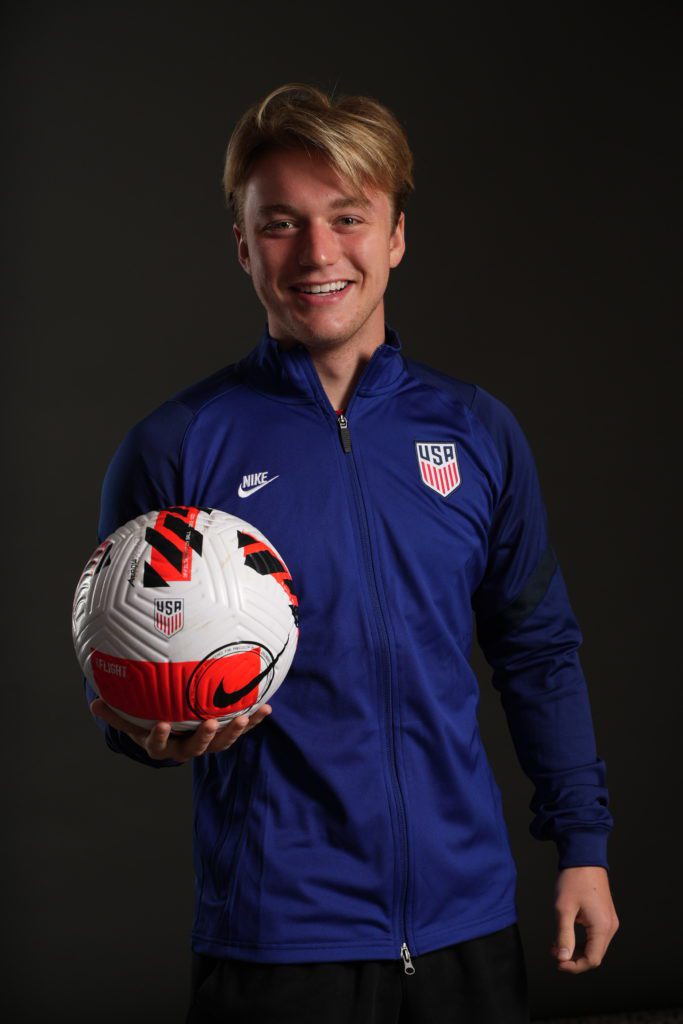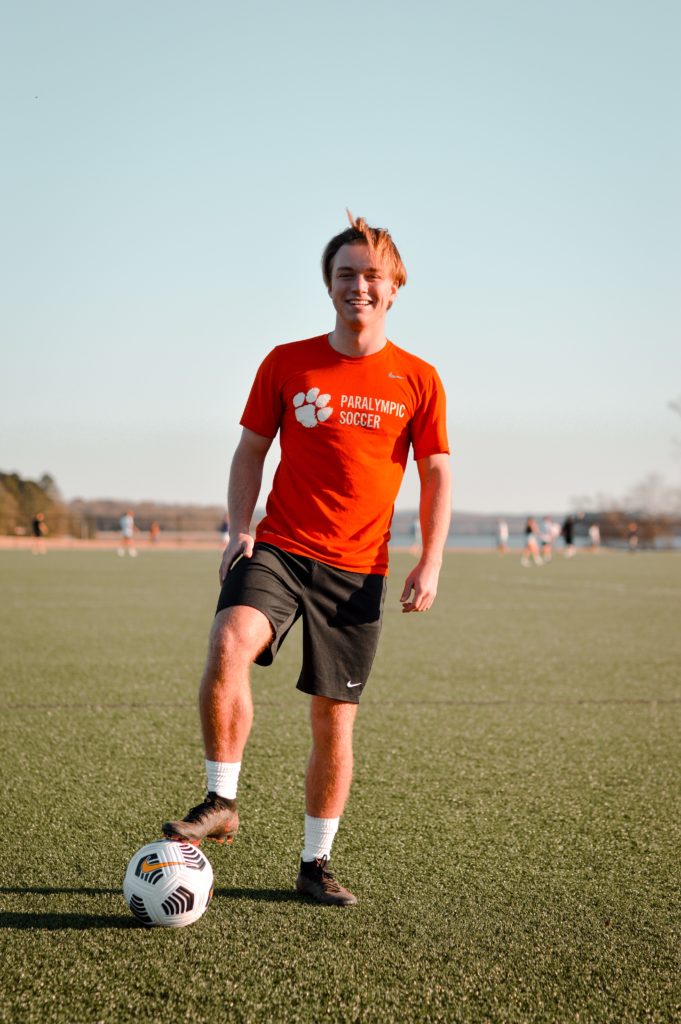
Shea Hammond’s childhood was far from typical.
As an infant, he was slower than most in learning to crawl and walk. When he finally did, his struggles were brushed off as simply being “clumsy.”
It wasn’t until he was six years old — when his mother noticed something was off with his motor skills — that a definitive diagnosis was reached on the physical issues he was experiencing.
“The orthopedist initially thought I just had tight calves or hamstrings, but when my mom mentioned my hand crunched up during physical activity, I was referred to a neurologist,” he recalled. “They performed an MRI on my brain and found a small, dead spot on the right side. It was determined I had a stroke either in utero or around the time of my birth. I was diagnosed with cerebral palsy (CP).”
The stroke had significantly weakened and tightened muscles on the left side of his body. Rather than opt for surgery, he immersed himself in physical therapy. Before and after school. Every day.
That was Hammond’s routine for years. He equated his left side to being like a rusted bolt in need of WD-40 application to better loosen and turn his muscles.
“I was very responsible when it came to my physical therapy,” he said.
Hammond’s father, Ashley, is a soccer coaching legend in New Jersey. For years, he served as director of coaching at Montclair United Soccer Club, helping a number of teams to state and national prominence.

It was assumed when Shea was born, naturally, that he would follow his father’s footsteps and also make a name for himself on the pitch. CP had other ideas, however.
“I was into soccer from a young age, but I could barely run or kick a ball at first,” he said. “CP affects my balance severely. If I tried to stop running or make a tackle, I would fall over. I stayed after, did extra practice and kept working at it — everything it took to get better. As I got toward middle and high school age, I started to catch up physically.”
At 13, Hammond discovered the U.S. Paralympic National Team. Athletes who qualified for the team were eligible because they had cerebral palsy, a traumatic brain injury or previously suffered a stroke. He joined the team but did not appear in a game until he was several years older.
Around the time Hammond’s interest in Paralympic soccer was growing, Clemson was in the early stages of starting its own program.
Dr. Skye Arthur-Banning — a professor in the Department of Parks, Recreation and Tourism Management since 2006 — worked with then Associate Vice President for Enrollment Management Chuck Knepfle to establish a program that would bring out-of-state athletes with disabilities and increased diversity to Clemson’s campus.
“Creating in essence a residential training program allows these athletes to push one another, get touches on the ball and improve their skills,” Arthur-Banning said. “They’re more fit, skilled and talented because they work on it with a volunteer coach who trains with them two days a week.”
The program started with two graduate students. Hammond learned about it through the U.S. National Team and made his first visit to Tigertown during football’s Military Appreciation Weekend in 2017. He was admitted to Clemson as the first undergraduate Paralympic soccer athlete in August 2020.
It didn’t take Hammond long to adjust to new surroundings.

“I’ve been here two years and I love this community so much,” he said. “In addition to Paralympic soccer, I serve as a peer dialogue facilitator within Gantt Multicultural Center, helping freshman and transfer students who are going through the required CU 1000 course.”
With the help of the Gantt Center, departments in Student Affairs and offices such as Student Accessibility Services, Hammond has enjoyed a robust Clemson experience.
He has taken an uncommon passion for soccer and serving those with physical disabilities to another level. Hammond and his father developed a nonprofit in their home state of New Jersey called CP Soccer in 2017. It aims to provide opportunities through the sport of soccer to youth impacted by cerebral palsy, stroke or traumatic brain injury.
In just a few short years, the nonprofit boasts over 10 locations across the country — including Clemson. Hammond serves as head coach and welcomes families from the Upstate and as far away as Kentucky to Nettles Park every other weekend.
“The school has been very supportive, but also the Clemson community,” said Hammond, a sports communication major. “I want Clemson to be a place anyone with a disability can make something of themselves and help pave the way for equal opportunity, recognition, respect and achievement.”
As a result of his charitable efforts and inspirational story, Hammond was one of four recipients to earn the inaugural Service & Hope Award from the United States Olympic & Paralympic Foundation in December 2021.
“Shea is a good kid who wants to do big things,” Arthur-Banning said. “He took a nonprofit from nothing to a national grassroots program, is ambitious and has a vision for how he can contribute back to the game he loves for kids with similar experiences he’s had.”
Not only has he given back to the local community, Hammond has also contributed directly to the U.S. Paralympic National Team’s success. In March, he traveled to England for a CP Tri-Nations competition and World Cup tune-up. Competing alongside fellow Clemson students and Team USA athletes Gavin Kohner and Kevin McCandlish, he scored one of Team USA’s goals in a 2-0 win over Scotland. He has competed in multiple international competitions and proudly worn the USA crest while traveling the globe playing soccer in Chile, Ecuador, Peru and Spain.
Even with all his travels, Hammond still gravitates back toward Clemson.
“My mom will ask me, ‘When are you coming home?’” he said. “I tell her, ‘I am home.’ I am where I belong. My two homes are Clemson, and wherever in the world I’m on a soccer field.”
